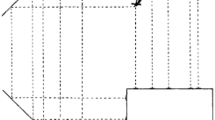Abstract
Most philosophers of science maintain Confirmationism's central tenet, namely, that scientific theories are probabilistically confirmed by experimental successes. Against this dominant (and old) conception of experimental science, Popper's well-known, anti-inductivistic Falsificationism (’Deductivism’) has stood, virtually alone, since 1934. Indeed, it is Popper who tells us that it was he who killed Logical Positivism. It is also pretty well-known that Popper blames Wittgenstein for much that is wrong with Logical Positivism, just as he despises Wittgenstein and Wittgensteinian philosophers for abdicating philosophy's true mission. What is not well-known, however, especially because Popper neglected to tell us in 1934, is that Wittgenstein is very much an ally. It was Wittgenstein who rejected induction in the strongest possible terms as early as 1922, and it was Wittgenstein who similarly rejected Confirmationism approximately four years prior to Popper. The aims of this paper are to illuminate the substantial agreements between Popper and Wittgenstein and, by doing so, to clarify their important disagreement regarding the status of “strictly universal,” scientific theories (or hypotheses).
Similar content being viewed by others
BIBLIOGRAPHY
Edmonds, David, and Eidinow, John: 2001, Wittgenstein's Poker, London: Faber and Faber.
Hahn, Lewis Edwin, and Schilpp, Paul Arthur (eds): 1986, The Philosophy of W.V. Quine, Open Court, La Salle, Illinois.
Monk, Ray: 2001, Bertrand Russell: The Ghost of Madness, New York: The Free Press.
Popper, Karl: 1959 [1934], The Logic of Scientific Discovery, London: Hutchinson & Co. Ltd.
Popper, Karl: 1963, Conjecture and Refutations: The Growth of Scientific Knowledge, New York: Harper Torchbooks.
Popper, Karl: 1963, ‘Science: Conjectures and Refutations,’ in Popper: Conjectures and Refutations, pp. 33–65; first published in C.A. Mace (ed.), British Philosophy in Mid-Century, 1957.
Popper, Karl: 1963, ‘The Nature of Philosophical Problems and Their Roots in Science,’ in Popper: Conjectures and Refutations, pp. 66–96; first published in The British Journal for the Philosophy of Science, 3, 1952.
Popper, Karl: 1972, Objective Knowledge: An Evolutionary Approach, Oxford: The Clarendon Press.
Popper, Karl: 1972, ‘The Aim of Science,’ in Popper: Objective Knowledge, pp. 191–205; first published in Ratio, I (1957) 24–35.
Popper, Karl: 1972, ‘Philosophical Comments on Tarski's Theory of Truth,’ in Popper: Objective Knowledge, pp. 319–335.
Popper, Karl: 1974, ‘Autobiography of Karl Popper,’ in Schilpp (ed.), The Philosophy of Karl Popper, pp. 3–181.
Popper, Karl: 1983, Realism and the Aim of Science, Totowa, New Jersey: Rowman and Littlefield, edited by W.W. Bartley, III.
Popper, Karl: 1992, Quantum Theory and the Schism in Physics, London: Routledge, edited by W.W. Bartley, III.
Quine, W.V.O.: 1986, ‘Reply to Charles Parsons,’ in Hahn and Schilpp (eds.), The Philosophy of W.V. Quine, pp. 396–403.
Rodych, Victor: 1997, ‘Wittgenstein on Mathematical Meaningfulness, Decidability, and Application,’ Notre Dame Journal of Formal Logic, 38, 195–224.
Rodych, Victor: 1999a, ‘Wittgenstein's Inversion of Gödel's Theorem,’ Erkenntnis 51, 173–206.
Rodych, Victor: 1999b, ‘Wittgenstein on Irrationals and Algorithmic Decidability,’ Synthese 118, 279–304.
Rodych, Victor: 2000, ‘Wittgenstein's Critique of Set Theory,’ The Southern Journal of Philosophy 38, 281–319.
Rodych, Victor: 2002, “Wittgenstein on Gödel: The Newly Published Remarks,” Erkenntnis 56, 379–397.
Rodych, Victor: 2003[2000], “Wittgenstein's Anti-Modal Finitism,” Logique et Analyse 43, No. 171–172, pp. 301–333.
Rodych, Victor: “Misunderstanding Gödel: New Arguments about Wittgenstein and New Remarks by Wittgenstein”, Dialectica, forthcoming.
Schilpp, Paul A.: 1974, (ed.), The Philosophy of Karl Popper, 2 vols. (The Library of Living Philosophers), La Salle, Illinois: Open Court.
Wittgenstein, Ludwig: 1922, Tractatus Logico-Philosophicus (London: Routledge and Kegan Paul); referred to in the text as ‘TLP.’
Wittgenstein, Ludwig, Philosophical Investigations (Oxford: Basil Blackwell, 1978 [1953]); translated by G.E.M. Anscombe; referred to in the text as ‘PI.’
Wittgenstein, Ludwig, Philosophical Remarks (Oxford: Basil Blackwell, 1975); Rush Rhees (ed.), translated by Raymond Hargeaves and Roger White; referred to in the text as ‘PR.’
Wittgenstein, Ludwig: 1998, Culture and Value (Oxford: Basil Blackwell [1994, second edition]).
Author information
Authors and Affiliations
Rights and permissions
About this article
Cite this article
Rodych, V. Popper versus Wittgenstein on Truth, Necessity, and Scientific Hypotheses. Journal for General Philosophy of Science 34, 323–336 (2003). https://doi.org/10.1023/B:JGPS.0000005086.09598.5e
Published:
Issue Date:
DOI: https://doi.org/10.1023/B:JGPS.0000005086.09598.5e




